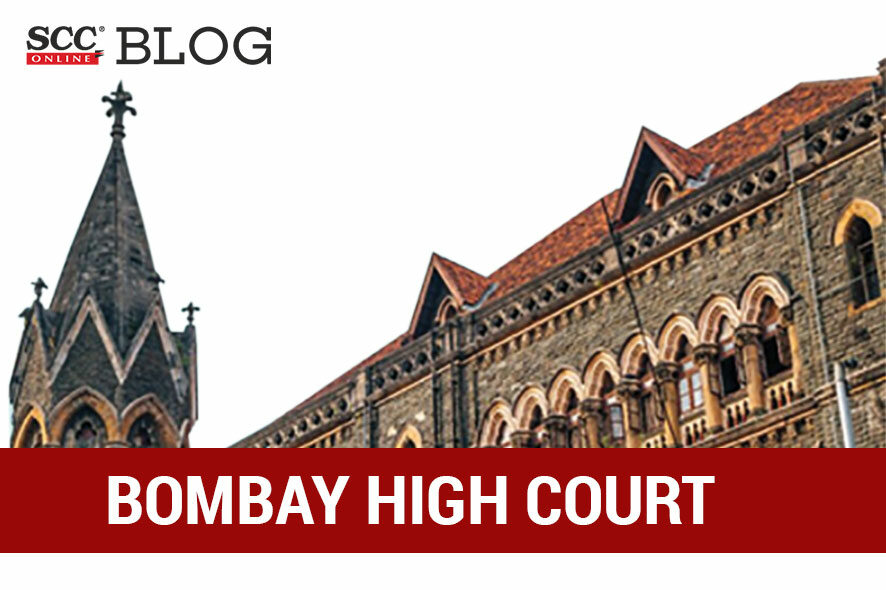Bombay High Court: In a petition filed by Sandeep Arjun Kudale, a Congress worker seeking quashing of the FIR(s) registered for the alleged offences punishable under Sections 153A(1)(a), 153A(1)(b) of Penal Code, 1860 (`IPC') with the Kothrud Police Station, Pune, and under Sections 153A(1)(a), 153A(1)(b), 505(2) with the Warje Malwadi Police Station respectively, a division bench of Revati Mohite Dere and Prithviraj Chavan, JJ., quashed the FIR(s), as the offences alleged are without any application of mind, when on the face of it, no such offence was made out against the accused (petitioner).
According to the complainant, Abhishek Ashok Kangane, a resident of Kothrud, Pune, while he was browsing his Twitter account, he saw a video clip uploaded by the accused. In the video, the complainant saw the accused, standing near the bungalow gate of Mr. Chandrakant Patil, Minister of Higher and Technical Education and Cabinet Minister, Maharashtra State and Palak Mantri (Guardian Minister), saying something objectionable.
According to the complainant, the said video clip was uploaded by the accused, on his twitter account and alleged that by uploading the said video, the accused had provoked the feelings/sentiments of the persons belonging to Dr. Ambedkar and Mahatma Phule's community, and as such had created disharmony between the communities. Thus, an FIR was registered.
The second FIR was registered by Sunil Babanrao Hingane, resident of Warje, Pune. He is an active member of the BJP and a Social Worker. According to the complainant, Mr. Chandrakant Patil, Palak Mantri (Guardian Minister) of Pune District had delivered a speech during his visit at Paithan District, in which, he had mentioned the names of Dr. Babasaheb Ambedkar, Mahatma Jyotiba Phule and Karmaveer Bhaurao Patil, in a context, which was misinterpreted by the accused. It is the complainant's case, that the accused had uploaded a video-clip on social media, in which he made some derogatory remark against the Minister Shri Chandrakant Patil.
The issue under consideration is whether offences as alleged under Sections 153A(1)(a), 153A(1)(b) and 505(2) of IPC are disclosed against the accused.
The Court observed that the statement in question based on which the FIR has been registered against the accused must be judged based on what reasonable and strong-minded persons will think of the statement, and not based on the views of hypersensitive persons who smell danger in every hostile point of view
The Court further noted that in order to constitute an offence under Section 153A of IPC, two communities must be involved. Merely inciting the feeling of one community or group without any reference to any other community or group cannot attract Section 153A. The intention to cause disorder or incite people to violence is the sine-qua-non of the offence under Section 153A of IPC and prosecution must prove prima facie the existence of mens rea on the part of the accused.
The Court opined that an influential person such as “top government or executive functionary, opposition leader, political or social leader of following or a credible anchor on a T.V. show” carries more credibility and must exercise his right to free speech with more restraint, as his/her speech will be taken more seriously than that of a “common person on the street”. However, a citizen or even an influential person is under no obligation to avoid a controversial or sensitive topic. Even expressing an extreme opinion in each case does not amount to hate speech.
The Court noted that by no stretch of the imagination, can it be said, that by the said words, the accused, even remotely promoted or attempted to promote, on the grounds of religion, race, place of birth, residence, language, caste or community or on any other ground whatsoever, disharmony or feelings of enmity, hatred or ill-will between different religions, racial, language or regional groups of caste and communities.
The Court concluded that the context and genesis in which the accused made the comments, cannot be lightly brushed aside nor ignored but must be weighed and considered in the context of what provoked the accused to make the said comments. It appears that the petitioner made the said comments pursuant to the alleged derogatory comments made by the Minister on a public platform with respect to Dr. Babasaheb Ambedkar, Mahatma Jyotiba Phule and Karmaveer Bhaurao Patil. The petitioner had only expressed his opinion, his dissent, and condemned what was stated by the Minister. The said comments expressed by the accused, were clearly his opinion/criticism of the Minister's speech, registering his protest to the same and by no stretch of imagination, can be said to be an act intended to cause disorder or to incite people to violence, which is a sine qua non to constitute an offence under Section 153A of IPC.
Thus, the Court held that the language used in the videos, at the highest, can be said to be distasteful, but certainly not warranting registration of the FIR, much less, the accused's arrest. Hence, the Court directed the State to pay Rs. 25000 to accused for this unjustified arrest.
[Sandeep Arjun Kudale v. State of Maharashtra, 2023 SCC OnLine Bom 519, decided on 27-02-2023]
Advocates who appeared in this case :
Mr. Subodh Desai i/b Mr.Lokesh Zade for the Petitioners
Dr. B.P. Saraf, Advocate General a/w Ms. Aruna Pai, P.P, Mr. D.N. Salvi, Spl. P.P. and Mr. J.P. Yagnik, A.P.P for the Respondent-State







